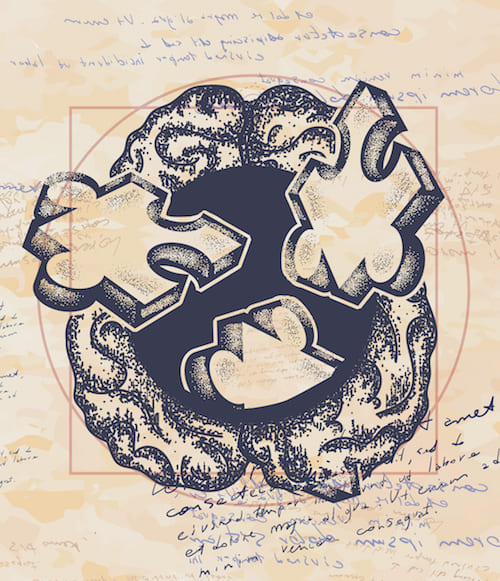August 19, 2019
By Katrina Holmes
 I have thoughts that not many other people do. They twist and twirl and dance around my head like wolves in sheep’s clothing. I can see them, hear them, feel them, lurking, waiting for a moment of weakness. When they come, and they almost always do, it feels like home. Because home is safe and these thoughts—they keep me safe.
I have thoughts that not many other people do. They twist and twirl and dance around my head like wolves in sheep’s clothing. I can see them, hear them, feel them, lurking, waiting for a moment of weakness. When they come, and they almost always do, it feels like home. Because home is safe and these thoughts—they keep me safe.
For many, obsessive compulsive disorder means arranging kitchen cupboards in a neat order or liking clean things. People tend to use it as a descriptive term, “Oh, I’m so OCD about that,” in conversation, on buses and trains, where I can hear them. They see it as a form of comedy, or a throw-away statement that won’t be held or remembered anywhere. But I inhale it and let it settle, like an infection. Because my experiences of OCD aren’t like that. They haven’t brought me to tears of laughter or had me begging for more. They have been darkness.
I once worked in a well-known retail store as a sales assistant, stocking shelves and helping customers. I would stand in front of my staff locker, every morning, staring at the transparent glass. I could see my handbag and my phone; they were there.
But one day my mind convinced me otherwise. So I started checking. I would push and pull on the lock so hard that my hands would hurt. Over and over again. Tears would come and go, people would stand and watch and eventually, I couldn’t move from the floor beside my locker. I couldn’t do my job.
I believed that I could handle it, because OCD was just a throw-away joke or something that you spoke about on buses or trains. I believed that I could handle it until it took me two hours to leave the house from checking the plug sockets and the taps and the switches and the electrics and so on. I would take pictures of them, record videos and eventually, call people so they could hear me checking them.
Why would I engage in such illogical behavior? Because if I didn’t, my husband would die. I whole-heartedly believed that if I didn’t succumb to my urges, that I would be responsible for my husband’s premature death, and I couldn’t let that happen.
So my life spiralled and so did my mind. I couldn’t control everything that I needed to in order to survive—for both of us to. I wanted out. I wanted to run to the very end of the earth and linger long enough on the edge of existence to know if I should jump.
There will always be times in every individual’s life when they will have to pick themselves off of the ground, dirtied by one of life’s disasters, and learn to walk again.
I had stayed in the house for months but time no longer existed. It was like a plot that you’d read in a Jane Austen novel that was put there as a romantic ploy. There were endless nights of contemplation and tears, arguments and numbness and in many ways, it felt like grief.
But as I worked against my mind, and taught myself to think differently and fight every urge, it slowly got better. The waves relaxed and the tide went out to sea. I could not only acknowledge sunlight but begin to feel it on my shoulders without any thought of death or disease, and it felt magnificent.
There’s no point talking over the many OCD experiences that took my life away because they also gave it back to me.
They are a safety mechanism, and the child in me that has always sought safety finally fought back. I know now, through CBT and therapists and friends, that though this might never fully go away, I don’t have to offer my hand freely.
OCD owns the word "disorder" because it debilitates. It crashes through you like a bulldozer and asks you to pick up the pieces. And once you do, once you do it over and over again, you will get there and the edge of the world really won’t seem like paradise at all anymore.
We’re always accepting submissions to the NAMI Blog! We feature the latest research, stories of recovery, ways to end stigma and strategies for living well with mental illness. Most importantly: We feature your voices.
Check out our Submission Guidelines for more information.
We’re always accepting submissions to the NAMI Blog! We feature the latest research, stories of recovery, ways to end stigma and strategies for living well with mental illness. Most importantly: We feature your voices.
LEARN MORENAMI HelpLine is available M-F, 10 a.m. – 10 p.m. ET. Call 800-950-6264,
text “NAMI” to 62640, or email. In a crisis, call or text 988 (24/7).